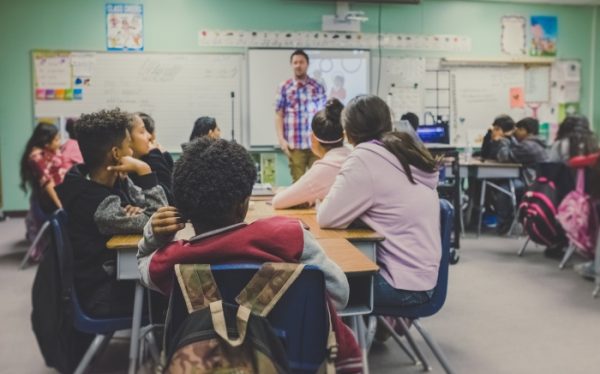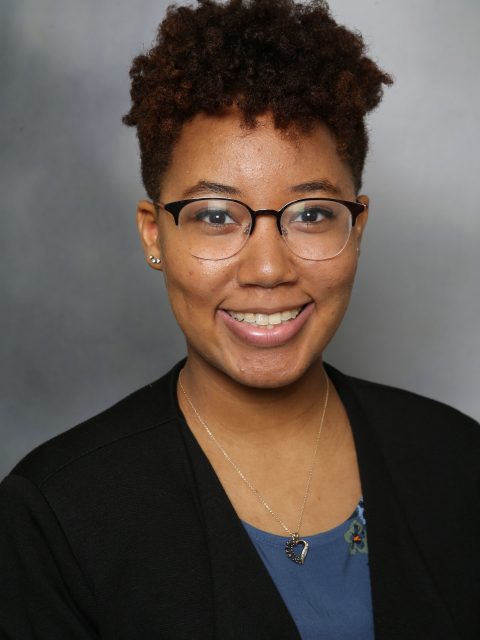The power of active citizenship and civic engagement in seeking justice for youth

The COVID-19 pandemic and ongoing protests for racial justice have shone a spotlight on the social inequalities present in our country.
This is especially true within the U.S. education system. The current state of our country highlights just how inequitable access to education is, and conversations around access to healthcare, affordable housing, poverty and racial discrimination feel more connected to educational opportunity than ever before.
A child experiencing any challenges within these circumstances cannot realistically participate in school at their fullest and best potential. Even recent news of

Secretary of Education Betsy DeVos’ insistence on reopening schools in the fall makes clear that the safety and well-being of some in our community would be more seriously compromised by that decision than others.
This swirl of head-spinning news has essentially left citizens across the nation and within our own communities feeling slightly helpless or lost, and asking the question “What can we do now?”
Fortunately, there are plenty of answers, prominent among them civic engagement and active citizenship.
Taking part in civic engagement and citizenship uplifts and empowers both individuals and the whole community. As a UNC Charlotte student, I have learned about the power we all possess to make change on both an individual and collective level.
My academic experiences at UNC Charlotte have emphasized the importance of viewing youth and education through the lens of the community. The Cato College of Education’s Minor in Urban Youth and Communities (CUYC) allowed me to understand education in urban settings from multiple different angles.
The minor’s interdisciplinary nature provided me with opportunities to study the sociological aspects of inequality, the power familial relationships can have on a child’s educational experience, the significance of service learning and the power of engaging with the community. Before COVID-19 required us to leave campus, I would have even finished the minor with a capstone project on the importance of youth participation in collaboration with local nonprofit GenerationNation.
The CUYC minor gave me academic opportunities for insight into the various ways citizens can influence the institutions in our communities. A broad and holistic perspective when viewing children and education ultimately enables us to take important steps towards achieving social justice.
[Read more: COVID-19 highlights educational inequities]
The time I have spent as the Student Director of Youth and Educational Outreach with the Office of Leadership and Community Engagement has reinforced those lessons through my work.
I (alongside five other Student Directors focused in different areas) primarily focus on coordinating with community partners and organizations in Charlotte to provide UNC Charlotte students with volunteering opportunities. Throughout this past school year, students and I volunteered with organizations such as the Charlotte Mecklenburg Library, Classroom Central, the YWCA and Transforming Youth Movement. Some volunteering events gave students the opportunity to directly engage with youth and their families, while others were more focused on doing a task that would benefit children and teachers.
My supervisors consistently emphasized reflection during the volunteering process. The ultimate goal of every volunteering event was to help volunteers acknowledge that volunteering is a radical act of social justice. Volunteering is more than going out and doing something kind for others; it is finding ways to build on work that is already being done to provide every member of the community with justice.
Service can take on many different forms, and active citizenship can involve members of the community from various circles. Whether one is reading to children in an after school program, creating vocabulary cards for teachers to use in classrooms, helping ensure that high schoolers are registered to vote, or planting trees at a local school, there is an abundance of ways to positively impact the education system and those within it.
But my involvement with the university’s Levine Scholars Program has been the most integral to shaping my belief in the power of civic engagement. Through the generosity of Leon and Sandra Levine, the scholarship’s benefactors, the program has prioritized civic participation and humanitarianism since its inception in 2010. Monthly community service is an expectation of scholars in every class, as well as developing a civic engagement project with grant money that is also provided by the program’s benefactors.
Because of the program, regular volunteering has been a part of my life as a student since I entered the university as a freshman. Connecting with fellow scholars helped me find community through service organizations such as Tan Kap Vini (TKV), which focuses on supporting foster families in Charlotte through providing tutoring and educational workshops to students and their families.
As I enter my fourth and final year with the organization, stepping into the role of Co-Vice President for the 2020-2021 school year, I look back on my time in TKV with deep gratitude. Our learners, their families, tutors, and community partners have helped me value the importance of collaboration to support the youth and families in our community that deserve to be uplifted.
Returning to the question of “What can we do,” there is one highly important word within that question: we. Recognizing interconnectedness is crucial to civic engagement and active citizenship — especially now, in a time of physical distancing, when many of our familiar routines have been upended and replaced with Zoom meetings. When we each appreciate that we as individuals have a place in our communities, we enable ourselves to see our presence as part of a whole.
Here are some action items that you can pursue to better your community today:
- Consume books, documentaries, podcasts, etc. made by creators from the communities who are experiencing oppression, especially within the educational system. You can even start a book club or discussion group.
- Sign online petitions. Demonstrating your support for change can actually grab the attention of people like elected officials who install laws and policies that make change.
- Donate your time or your money. Giving can come in the form of virtual volunteering with various community organizations, aiding teachers and school staff in the upcoming school year, or providing groups and organizations with funds so that they can get the resources that they need to continue their work.
- Vote. If you have the ability to vote, you have the power to actively choose the elected officials who will make decisions that impact the youth in our communities.
- Reflect on your role as an advocate for youth. Your voice is important since the voices of youth can go unnoticed or be invalidated. As an adult presence, be as supportive as possible of youth who are advocating for their needs and the challenges they face. Amplify their voices in a way that uplifts the action and leadership roles they may be taking on themselves.
There is work to be done to seek justice for youth in Charlotte, throughout North Carolina, and across the nation. Every member of our community must realize that they have a place in creating a more equitable world. Everyone, no matter who they are or where they come from, can engage in meaningful work that uplifts their community.
Elise Lyght, Class of 2021, is a summer intern with the Urban Institute. She is completing a major in English, and minors in Urban Youth & Communities and Applied Understandings in Global Education.
Elise Lyght